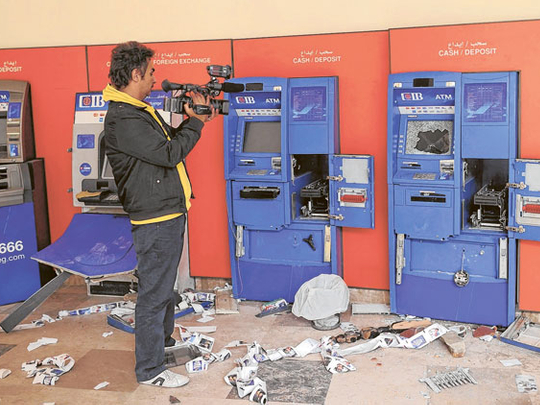
Dubai: Violence across Egypt calling for a new government has changed the spending and investment patterns of its expatriates in the UAE, some residents said.
Ahmad Abdul Naby, 26, an Egyptian engineer in Abu Dhabi, froze his investment plans back home after riots broke out in Cairo.
Abdul Naby was considering buying an apartment in the capital but has decided to wait until the situation stabilises.
The political eruption in Egypt has alerted Egyptian expats to the importance of saving for the bad times, Wesam Fadel, 26, an Egyptian-Palestinian resident said.
"You don't feel like you want to shop. You want to know what will happen next," he said.
The situation has made expats more money conscious.
Fadel is avoiding buying things he does not need and is donating part of his savings to charities in Egypt.
"It makes you think how to help them," he added.
Consumer behaviour
The expats' decisions match economic theory on consumer behaviour, Dr Amany Al Anshasy, Assistant Professor of Economics at the UAE University said.
Investors are affected by the mood and political risk in a country and there are new economic indices measuring such risks, she said.
The higher the political risk, such as the instability in Egypt and Tunisia, the lower the investments flowing into the country.
The current unrest will have only a short-term impact on Egyptian expats' spending and investment patterns, she predicted.
If the democratic environment improves, the political risk indices will be lower and encourage investors.
However, if freedom and civil liberties are limited, political risk would increase — limiting expat remittances and investments back home until they are assured of political and economic stability.
It is unlikely that the real estate market will be affected as expats will defer buying an apartment this year to see where the country is heading, she said.
In the long term, if democratisation and civil liberties are achieved, the Egyptian market could see a great rebound in capital inflow, according to Al Anshasy.
Banks closed
The Egyptian stock exchange and banks across the country are closed, making it difficult for Egyptian expats to send money home at the beginning of the month, they said.
Sally Mohammad Ateya, 32, an Egyptian resident of Sharjah, cannot send money to her two children in Cairo.
"I don't know what to do. The children called me so I can send money tomorrow.
"I'm so upset, they were waiting for the first of the month. But how do you send the money?"
She used to send remittances through a local money exchange but now with the banks closed she has no choice and does not trust the postal services in this turmoil, she said.
"The situation is bad for expats. They have to think of the people abroad. There are families waiting for people here to send them money… how will they survive?" she said.
"They have to back up the banks with more army troops," she added.











